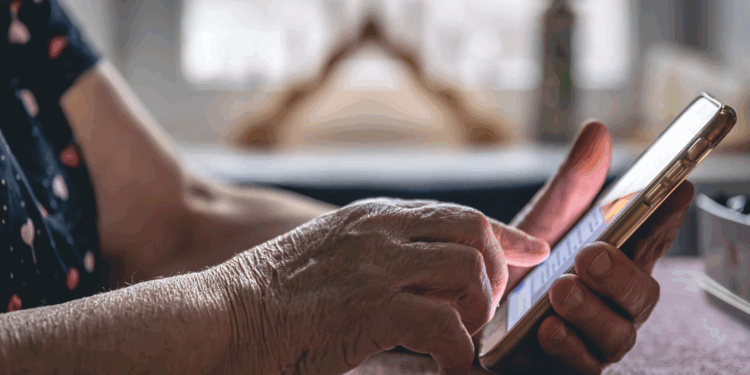Staying connected online has become an integral part of everyday life, whether it’s for banking, shopping, keeping in touch with family and friends, or simply staying informed with the news. For older adults, especially those who adopt smartphones, tablets, and computers later in life, the internet presents tremendous opportunities. Yet, one small but essential step is often overlooked: password safety.
A strong password is your first line of defence against online scams, identity theft, and fraud. Fortunately, keeping your personal information secure doesn’t require expert-level computer skills, just a few simple, smart habits.
Why Password Safety Matters More Than Ever
For many older adults, the internet acts as a lifeline, offering a way to video call grandchildren, book health appointments, pay bills, order groceries, and access a world of entertainment. However, with all this convenience comes risk.

Join Now >
Hackers and cybercriminals are constantly on the lookout for easy targets, and unfortunately, older users can sometimes be seen as more vulnerable. One of the first things criminals try is guessing passwords, especially ones based on easily found personal information, such as birthdates, family names, or simple number patterns like “1234.”
If a password is cracked, it can lead to serious consequences. Everything from your bank details to your email, health records, and social media accounts could be exposed. Therefore, creating and maintaining strong passwords is not just a recommendation; it’s a necessity for protecting your identity and your independence online.
What Makes a Password ‘Strong’?
A good password is extremely difficult for others to guess or crack, even if they know personal information about you. Here are a few golden rules to keep in mind:
- Use at least 12 characters: Longer passwords are harder for attackers to break.
- Mix uppercase and lowercase letters: Variety makes passwords stronger.
- Include numbers and symbols (such as @, #, $, or !): This adds an extra layer of complexity.
- Avoid using personal information: Birthdays, names of children, pets, or your home address make passwords easier to guess.
- Steer clear of common words or sequences: Passwords like “password123” or “abcd1234” are among the first combinations hackers try.
Instead of choosing something obvious like “Aman1970”, you could go for something like “Tea4Two!SunnyDay22”; it’s memorable for you, but much harder for someone else to figure out.
Simple Password Habits for Older Adults
Creating one strong password is an excellent start, but keeping good password habits overall is just as important. Here are some simple, effective ways older adults can manage their passwords safely:
1. Use Different Passwords for Different Accounts
It might be tempting to use the same password everywhere, but this can be risky. If one website you use gets hacked, criminals could try the same password to access your email, bank account, or even social media. By using different passwords for different accounts, you limit the damage if one password is compromised.
2. Write Them Down Safely
Remembering multiple complex passwords can be difficult for anyone, especially if you are managing many online accounts. It’s perfectly fine to write your passwords down, but do it safely. Keep a small notebook in a secure place at home, like a locked drawer or a personal filing cabinet. Avoid leaving passwords on sticky notes near your computer or in your wallet where they might be easily found.
3. Use a Password Manager
Password managers are secure apps that can create, store, and fill in strong passwords for you.
They require you to remember just one master password, and the software takes care of the rest. Many trusted password managers are available, some even with free versions, like Bitwarden, Dashlane, or LastPass.
4. Update Passwords Regularly
Just like you might change the locks if you lose your house keys, it’s important to change your passwords regularly. A good habit is to update them at least once a year or immediately if you notice suspicious activity on any of your accounts. Updating passwords can be a good time to strengthen them, too. Avoid simply adding “2025” to an old password; create something new and strong following the rules mentioned earlier.
5. Be Cautious About Password Requests
No legitimate bank, government office, or company will ever ask you for your password by email, text, or phone call. If someone contacts you asking for your password, it’s a scam, no matter how official they sound. Always double-check by contacting the organisation directly using a phone number or email address you trust.
Extra Tips for Staying Secure
- Enable two-factor authentication wherever possible. This adds an extra step to logging in, like entering a code sent to your phone.
- Be wary of phishing emails and fake websites that look official but are designed to steal your login details. Always double-check website addresses and email senders.
- Keep your devices updated with the latest security updates, which often include protection against new types of cyber threats.
Conclusion
Staying safe online doesn’t have to be complicated. With a few good habits, older adults can enjoy the many benefits of the digital world while keeping their personal information secure. Think of a strong password as a digital lock and key. The stronger the lock, the harder it is for anyone to get inside. By using strong passwords, keeping them safe, and staying alert, you protect yourself, your family, and your peace of mind.
Good password habits are not about fear; they are about confidence. With a little attention to digital safety, you can continue to connect, explore, and enjoy all that the internet has to offer, feeling independent and secure at every click. So next time you set up a new account or are asked to update your password, remember: You have the tools to stay safe, one strong password at a time.








